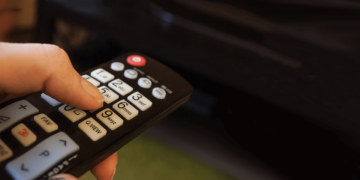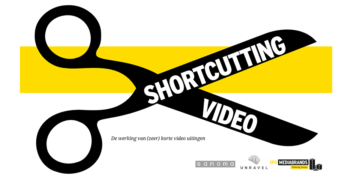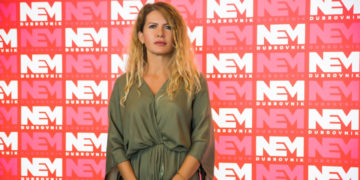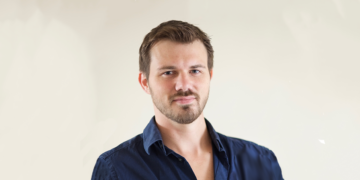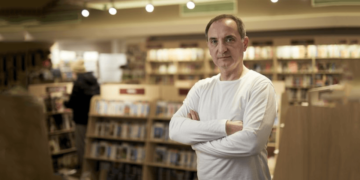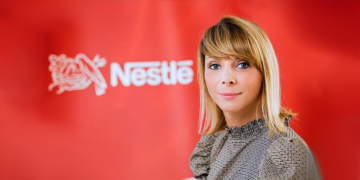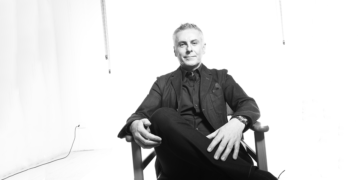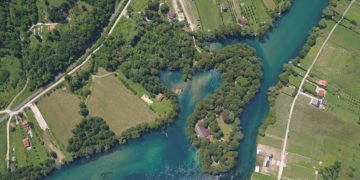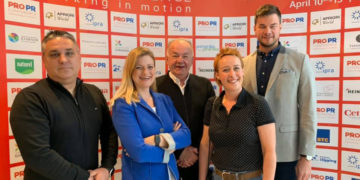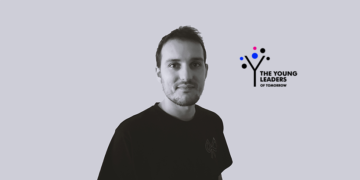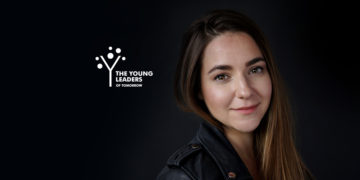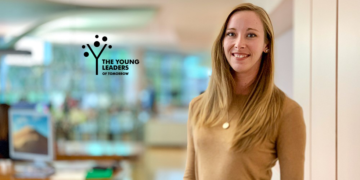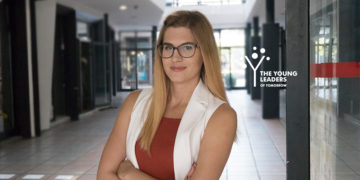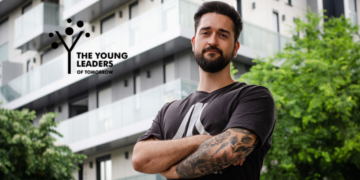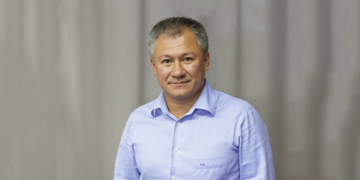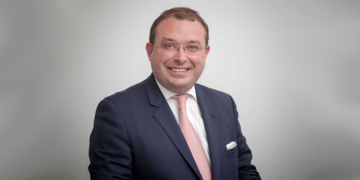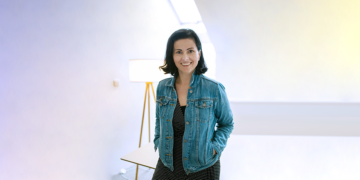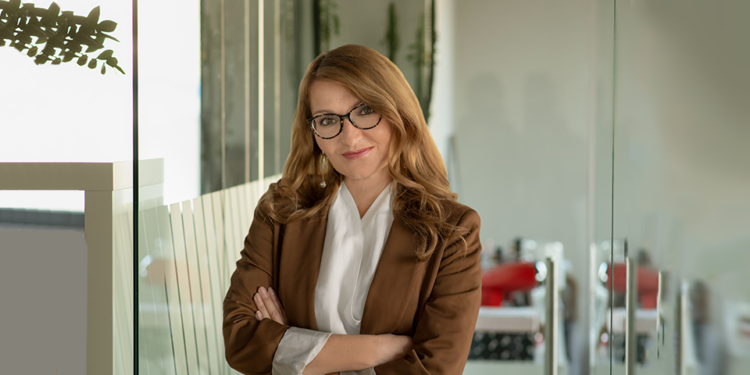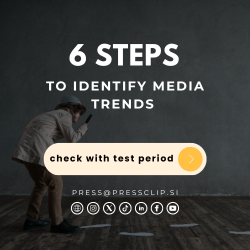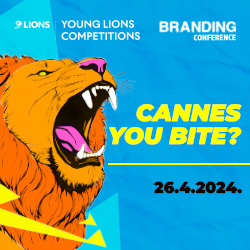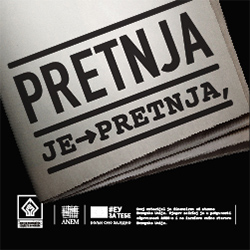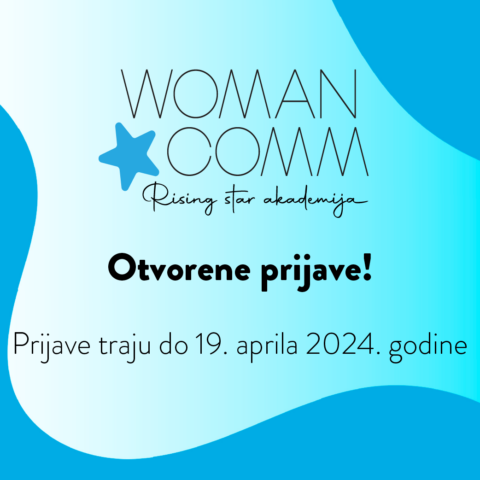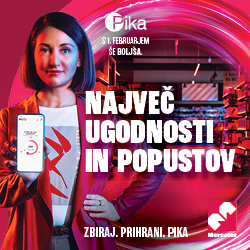Drugi jezik na kojem je dostupan ovaj članak: Bosnian
Aleksandra Dilevska is Director of Publicis Group Zagreb and Publicis Group Skopje. Running two agencies located 800km apart was never going to be easy, never mind under pandemic conditions. She has succeeded. How? Only she can tell us.
We published our first interview with Aleksandra in March 2019 (https://www.media-marketing.com/intervju/aleksandra-dilevska-kada-sam-razmisljala-o-viziji-i-zeljama-za-2019-godinu-mnogo-sam-stvari-strpala-u-tu-korpu-cilj-mi-je-nesto-sto-ce-napraviti-razliku/). The story Aleksandra told us then remains relevant today, despite the completely changed circumstances. Some industry fundamentals have not changed, but a lot of things have. So, what has changed? What has the pandemic given us and what has it taken away? How should we manage this crisis? You will find answers in the interview.
Media Marketing: The pandemic has set the communications industry on its ear, overturning the established order of magnitudes and values. What are the likely long- and short-term consequences for the industry?
Aleksandra Dilevska: It has caused great disruption and major challenges in every sector of the industry and life, because it is not just a crisis in health, it’s a financial and social one too. It’s not localised. It’s happening everywhere, all round the world, all at once, to everyone, regardless of location or social status. Recovery will be difficult in some sectors and not everyone will bounce back from the pandemic and its consequences. The communication industry is part of all that. The scope of our business and media activity has been significantly reduced and there has been a shift to digital channels and performance formats. Offline has been suffering, while e-commerce has experienced quite the boom and, along with online video advertising and social media, become the driver of recovery for the communication business. Restricted access to retail has made e-commerce and the digital environment an important channel for interacting with consumers.
At Publicis Group Adriatic, we bring locally and regionally integrated creative, media, digital, event, and PR teams together under one roof. This guarantees our stability and gives us the robustness to withstand risk and maintain our level of business.
Encouragingly, the third and fourth quarters saw a recovery. Our media agency Zenith has improved its outlook for 2020, forecasting a global fall of 7.5%, thanks to increased activity in the second half of the year. We have registered the same trend locally: after the initial shock and cut-backs, communication activity came back strong in the second half of the year, but not enough to fully soften the blow to the industry. We expect digital transformation and the return of the TV format to be the basis for growth in 2021, but the industry will not return to 2019 levels. I also think that return to some sort of “new” normal will help direct and experiential channels of communication, including both live experiences and events, regain their importance.
From the agencies’ perspective, the negative impact in the short term will be very strong and the consequences will be felt long-term. Some agencies will take a heavy blow, especially agencies focused on a single specialisation and smaller agencies that depend on one or two significant clients. I think agency structure, diversification of specialisations and services, digital resources and a balanced client portfolio will play a crucial role in development for years to come. These are things that cannot be built up overnight.
We have been building our structure locally for years and both regionally and beyond for the last three years by implementing our group strategy, The Power of One. At Publicis Group Adriatic, we bring locally and regionally integrated creative, media, digital, event, and PR teams together under one roof. This guarantees our stability and gives us the robustness to withstand risk and maintain our level of business. We even saw growth in some areas against last year. And, even more importantly, it gives us the strength to take a more ambitious run at 2021.
Alarm bells are already going off about the impact the crisis, uncertainty, and change in the workplace and in social life are having on mental health. This is going to be a problem long beyond vaccination.
Media Marketing: What are the challenges facing us as a result of these recent changes?
Aleksandra Dilevska: It is at times like these that we see just how fragile businesses, society, and we ourselves all are. What we need are security and certainty in the times that are now coming. The important thing is for us to provide stability and unhindered continuity of business and services to our clients, to develop and protect agency talent, and to ensure a high standard of agency product.
Operationally, it is a great challenge connecting people working from home and keeping them engaged and inspired. The line dividing work from home life has been blurred, with the result that productivity is down, even if people are actually working more. There is pressure on everyone, but especially on team leaders and decision-makers, and those with large families. In a context like this, it is difficult to create and build an organisational culture, take on a leadership role, learn and progress, or develop friendships in the workplace.
Alarm bells are already going off about the impact the crisis, uncertainty, and change in the workplace and in social life are having on mental health. This is going to be a problem long beyond vaccination and dealing with it will be a priority for organisations in the long-term.
As I write these words, two of our teams at our Macedonian agency are holding an online creative session, working with teams from Dusseldorf and Brussels on a pitch for a client in Germany.
Media Marketing: How much are the changes affecting how we work?
Aleksandra Dilevska: For all the crisis’ negative implications, I think it has forced us to show our true mettle, whether by developing new skills or making better use of existing resources and technology, and to take a leap into the future. We have learned to cooperate better, faster, and more effectively. We have started working from home one day a week. We can join any meeting, cooperate with any specialist or colleague from any country, and participate easily in sessions with regional and international clients.
As I write these words, two of the teams at our Macedonian agency are holding an online creative session, working with teams from Dusseldorf and Brussels on a pitch for a client in Germany. Super exciting, especially because our idea is in the lead. Last month our Croatian media team was working with teams from Czechoslovakia, Romania, Serbia, and the UK on a joint pitch. This would never have happened if the crisis had not pushed us into it.
Companies are considering a hybrid mode of operation: from home and in the office; something we are currently doing too. We need to analyse our operations thoroughly over the long run. Global studies show that a majority of employees want a return to the office, while 25% of those who previously worked in an office now want flexibility. This imposes a new complexity on how we do business and it will not suit all industries. We need a thorough analysis to determine how much to change how we work.
Still, the situation has a flipside: for all the great opportunities working from home offers for collaboration, productivity remains a challenge. It requires more time to prepare campaigns, agree and approve all the assets, and begin rollout of a campaign.
Media Marketing: What should our priorities be as businesses?
Aleksandra Dilevska: There are a few, but I would focus on the need for sustainability, setting clear goals, and taking care of our people. It is clearer now, more than ever before, that companies need to have a clear goal based on products, culture, and creating value for all the stakeholders in a business, customers, shareholders, suppliers, employees, and society. One shining example I’ve seen of this are companies that set a triple bottom line: People, Profit, Planet.
Brands should focus on positioning and building their image, and not on donations and defining their mission. This should be what guides us and the brands we work with.
It is even more important to honour your word and practice what you preach, no matter how difficult that may be. Consumers and society will hold us to our word.
On top of all that, a major point is taking care of our employees: as I mentioned above, things will not return to normal when the threat to our physical health disappears, but only when we are able to free ourselves from the collective trauma and threat to our mental health.
It has been and remains important for brands to keep communicating with their customers, show understanding and support, to be accessible and have the right message.
Media Marketing: The pandemic has accelerated certain processes. Which ones?
Aleksandra Dilevska: So far as I’m concerned, there have been two important developments that have pushed us fast-forward by at least a couple of years: online cooperation and the mass take-up of online channels of purchase.
Online cooperation has not entirely replaced physical meetings, presentations, and cooperation but has made it quite clear how easy it is to cooperate independently of where you happen to be physically. This has opened up enormous possibilities for connectivity, cooperation, and the creation of flexible connected teams. We have recognised this in the Adriatic region too and it already informs how we work.
It turns out e-commerce platforms can be brought online in just a few weeks. That people are ready to shift to buying household goods online overnight. E-commerce is up 25% worldwide. This growth in e-trade has been even more dramatic in lower development countries. Our research in northern Macedonia shows e-trade on local web-shops up 99% during the first quarter of the year.
During the pandemic, the e-trade channel was the only way some products and businesses had to communicate or conduct transactions and it has as a result become very important. How brands achieve differentiation has become even more important in this digital environment, as has how to create meaningful interaction with customers.
Media Marketing: Overall, how do you assess the industry’s performance and more particularly that of the creative side during the pandemic? As a profession, have we reacted responsibly and professionally?
Aleksandra Dilevska: I think that the agencies have been proactive over the period and are continuing to be so. It has been and remains important for brands to maintain communication with their customers, to show understanding and support, to be accessible and have the right message.
We have been swamped with reports and case studies from the net and other markets on consumer attitudes and behaviour, and we have tried to give our clients regular comprehensive and clear perspectives on what has been happening both globally and locally and to make credible recommendations. We have also conducted internal studies and analyses on what consumers expect of companies and brands.
It was difficult during the first phase of the pandemic to distinguish and differentiate between campaigns around the world: everybody was calling for concern, support, responsibility, and empathy. That was inevitable, given the situation and limited production capacities, not to mention the fact that everybody and all the brands in the world found themselves in an unprecedented situation, going through the same crisis at the same time all round the world. Nonetheless, we still saw excellent campaigns, both globally and locally, that touched us – campaigns particularly dear to me from that first phase of communication under the crisis were our Ledo Take Me Home campaign and the Skopsko Back to bars campaign.
Perhaps the most important advance this year was our implementation plan to link up our teams around the region and create a compact Adriatic team or, as we call it, the One Team.
Contemporary communication and storytelling have returned to authenticity of tone for brands and communicating a certain realistic optimism. It is what people have been missing and it is what inspired us in creating our campaigns for Macedonian and Montenegrin Telecom, for Dorina…
Media Marketing: What path should we take into the future? What are the opportunities and where is there danger lurking, which values should we be getting behind?
Aleksandra Dilevska: Courage, empathy, and modesty. Covid has shown us that we’re not as strong as we thought and that our greatest strength lies in good deeds.
Media Marketing: How has Publicis Group Adriatic organised itself to respond better to client needs under the new realities? What have you improved, what have you learned, and how will all that affect the future of the agency model?
Aleksandra Dilevska: Perhaps our most important advance this year was our implementation plan to link up our teams around the region and create a compact Adriatic team or, as we call it, the One Team.
The basis for it is our existing homogenous regional structure and strong teams for local markets from Triglav to Gevgelija. In this regard, we think of Publicis Group Adriatic as a modular structure and a network of professionals – the crisis has forced us to forget about who sits where and to put together connected teams that are tailor-made to meet our clients’ specific needs, depending on the specialisations required, while minimising location as a factor.
This has enabled us to take advantage of all the expertise, top industry specialists, experts, and tools at our disposal across the Adriatic region when creating ideas and solutions for local and regional clients. From our peoples’ perspective, it allows them to work for clients and on projects out of country and so cooperate with new people and on different projects and so acquire new expertise and skills.
This linking-up is also in line with the Publicis Group’s strategy at the global level. All 80,000 Publicis Group employees are linked through an AI platform, Marcel, which, as well as being a source of information, expertise, and collective creativity, is also a way for people who are not currently engaged to be included in teams for a client all round the world, as required, and so to work on projects they otherwise could never be included in, while keeping their primary job.
Behind every effective idea, there is excellent strategy and effective execution.
Media Marketing: Publicis Croatia – you were quite active during the pandemic and, to all appearances, rather successful, launching a number of excellent campaigns for your clients.
Aleksandra Dilevska: Everything currently happening at Publicis Group Croatia is a result of years of strategy and work. From the moment I came to Zagreb, I decided to focus on transforming the mindset at the agency, developing creative and digital resources, and bringing on new clients. The results we are now seeing in our creative agencies are based on a synergy of strategy, creative ideas, and client orientation. Or, to use our terminology: make it right, make it magic, make it work. Behind every effective idea there is excellent strategy and effective execution.
As a result, some excellent campaigns bore fruit during the pandemic, most of them on regional markets: Jana, Ledo, Dorina, Pampers, Sanofi, Sandoz, Kraš, Gavrilović. The second half of the year was “back to business” for clients – and I’m proud of how they have entrusted their brands to us in such turbulent times.
Media Marketing: How do you assess the creativity of the Publicis agencies across the region? Serbia has had a number of excellent campaigns, as has Ljubljana, with a number of new clients. Overall, corona doesn’t seem to have left any deep scars on your agencies’ operations, does it?
Aleksandra Dilevska: It hasn’t! We accepted the challenge and got even more stuck in. And worked very hard. We pitched a lot, supporting our existing and winning new clients, creating successful campaigns, and winning recognition and awards on all markets. In this regard, I really think we’ve achieved a lot.
Even with corona conditions and reduced production budgets on some markets, the quality of work has been good. I don’t think awards are the only proof of that – they are a result of excellent work and high levels of creativity, but they’re not the be-all-and-end-all, by any means. What matters is that our campaigns are successful and offer the brands value. That we’ve used good strategy, ideas, and creativity to help our clients reach people with their brands at a critical time, to send them a message and inspire them and motivate them to do something.
In talking about the region and creative work, I do think that Macedonian agencies, and I’m not just thinking of the Publicis Group here, have very good creatives and produce excellent work, which is not seen around the region. The responsibility for that lies with us in the industry because we don’t communicate and there isn’t a single established high-level industry event on the Macedonian market.
Media Marketing: I assume that you are currently busy drafting a business plan for 2021, if you haven’t already finished it and sent it to Belgrade and Paris. What assumptions is it based on and how realistic is it to create a good business plan today, given we don’t really know what is going to happen on the market or in our own lives over the coming year?
Aleksandra Dilevska: Our business plan is not just a plan. It’s a Commitment – and that’s what we call it 😊 During the past year, we secured an extension of our contracts with existing and new clients, but, as always, there is uncertainty. In any given year, we don’t necessarily know where all of our income will come from. And we’re used to that. There will be unexpected pitches, recommendations, new projects for existing clients, global sporting events… No one really knows what is going to happen, not even me. What I do know is that we have done our best to ensure stable functioning in 2021 and to be valuable and reliable partners for our clients.
I would be lying if I said success was not the driver that gives purpose to everything I do.
Media Marketing: Does Publicis Zagreb have an optimistic, pessimistic, or optimal business plan for next year? Do you expect to grow or tread water in a financial sense?
Aleksandra Dilevska: In spite of all the external influences, Publicis Group Zagreb has had a good year and is not treading water – in 2020 we saw growth all across the business: in creative, media, and digital. Of course, our revenues took a hit from reduced off-line media activities for clients in the second quarter of 2020, but diversified specialisation and services nonetheless offered new and increased sources of net revenue.
We are projecting stable growth in 2021. Next year will be full of challenges, but I think we’re ready for it. We have a good portfolio of strong clients in all categories. We’ve taken on some new clients at our creative and media agencies, as well as a new telecom client at Saatchi, and we’re preparing a new team and expanding it with new professional hires.
Media Marketing: And now for something just as important, what is in store for you personally? Continually creating and developing leadership, creating a more optimistic future…? Where do you see yourself next year?
Aleksandra Dilevska: From a professional point of view, there are four things that are important to me: creating and developing personnel; moving forward and creating something new and exciting; contributing significantly to our environment through what I do. And, fourth, being successful in all this. I would be lying if I said success was not the driver that gives purpose to everything I do. The pandemic does sometimes look like an opportunity for broader action, but my priority now is our people and our clients. The pressure is currently so great that there is hardly any time left over for anything more or broader. Which will definitely be my focus in the coming year.

